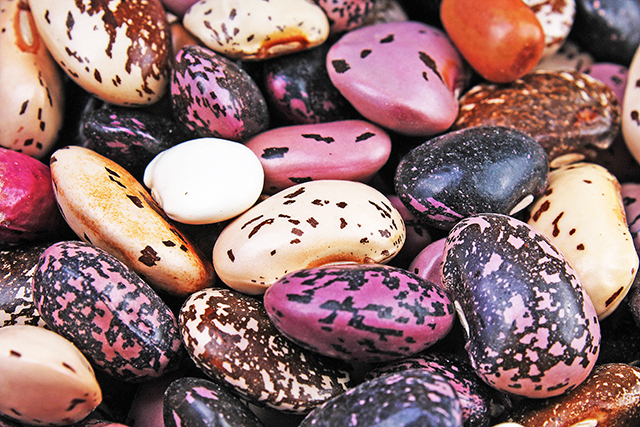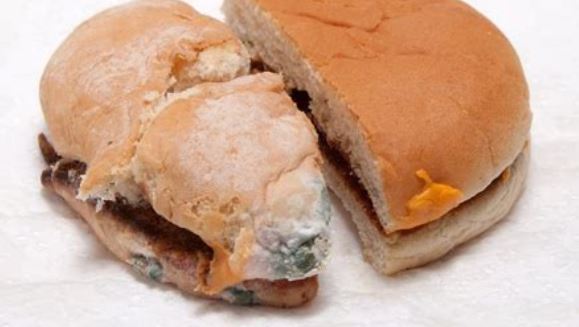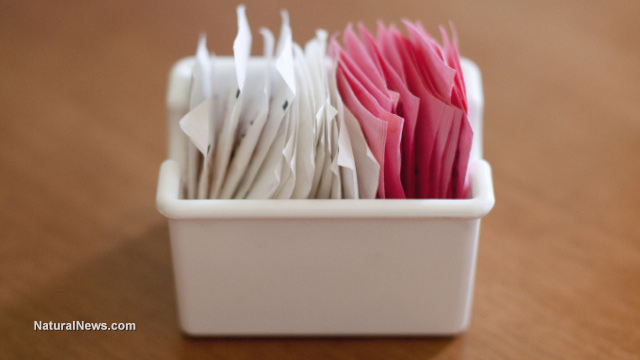Another reason to avoid processed food: Additives such as emulsifiers and thickeners could be compromising your gut health
06/05/2019 / By Isabelle Z.

Emulsifiers are often used to thicken foods and give them a more desirable texture. Although some are synthetic, many are natural and are added to food geared toward health-conscious shoppers. Many of these are considered “generally regarded as safe” by the FDA, but that does not mean there are no side effects associated with them. Unfortunately, many people find that these ingredients can seriously impact their digestion and gut health. Here’s a look at some of the most common thickeners you might encounter and how they can affect your health.
Carrageenan
Derived from red seaweed, this ingredient is often used in foods such as yogurt, milk and condiments. While some studies show it is safe, others have found the opposite, pinning problems like insulin interference and inflammation on the ingredient. Researchers have determined that carrageenan can cause gut inflammation and symptoms of inflammatory bowel disease.
Cellulose gum
Cellulose gum comes from the walls of different plant cells and is often used for thickening low-fat foods thanks to the creamy texture it lends. Unfortunately, as its use has risen in an assortment of foods, inflammatory gut conditions like irritable bowel syndrome have also increased, and experts believe there is a connection. After all, animal studies have indicated the ingredient can cause obesity and inflammation, even at low doses. It also erodes the intestine’s protective lining and alters gut bacteria.
Polysorbate 80
Polysorbate helps to bind ingredients together and make them smoother. For example, it is used in ice cream to help it stay rich and creamy instead of turning into a frozen brick after spending some time in the freezer. Although it’s also considered safe by the FDA, it can cause digestive imbalances. Animal studies have shown that it causes an immune response like that seen in people with colitis as well as intestinal inflammation, and it also shortens mice colons and disrupts their gut lining.
Xanthan gum
If you’ve ever bought a gluten-free baked good, you’ve probably come across this ingredient – and you may even purchase it yourself for homemade gluten-free baked goods to give them the doughy texture that such foods normally get from gluten. It’s also used in wallpaper glue and oven cleaner.
Xanthan gum is natural in the sense that it’s produced via bacterial fermentation, but it’s important to note that it does pose digestive problems. In fact, some babies who were given formula that had been thickened with xanthan gum developed deadly intestinal diseases. Although their digestive tracts are more sensitive than those of adults, it’s something to be aware of, particularly when feeding foods that contain this ingredient to children.
Avoiding emulsifiers can ease digestive discomfort
When people experience regular digestive discomfort, they’re often advised to cut out dairy, gluten or other common irritants. If you’ve tried this to no avail, eliminating emulsifiers and thickeners could do the trick.
One place where you’ll often find these ingredients is in nut milks, such as coconut and almond milks. Baked goods and non-dairy yogurt and ice cream are other common culprits. Be sure to check labels for the aforementioned ingredients, and consider making these foods yourself.
Nut milk is surprisingly easy to make at home, and you only need a cheesecloth or nut milk bag and a blender. It’s also often far cheaper than buying prepared nut milks. You can also whip up your own salad dressings in no time at all, experimenting with different combinations of oils, acids like vinegar or lemon juice, and herbs to get the right flavor to complement whatever you’re using in your salad.
Even if you’re actively seeking healthy options at the store, packaged foods can still contain ingredients that can cause digestive issues and other health problems. Learning to make the foods you often buy prepared could be one of the best investments you make in your health.
Sources for this article include:
Tagged Under: carrageenan, cellulose gum, digestion, digestive problems, emulsifiers, gut bacteria, gut health, ingredients, polysorbate 80, thickeners, toxic ingredients, Xanthan gum
RECENT NEWS & ARTICLES
COPYRIGHT © 2017 INGREDIENTS NEWS

















